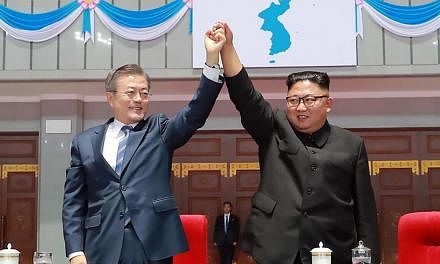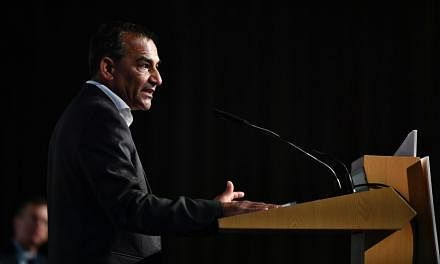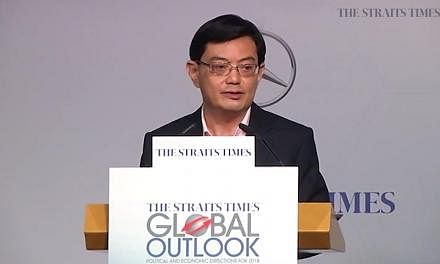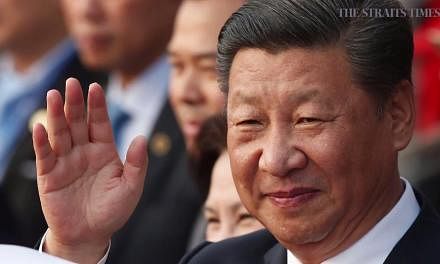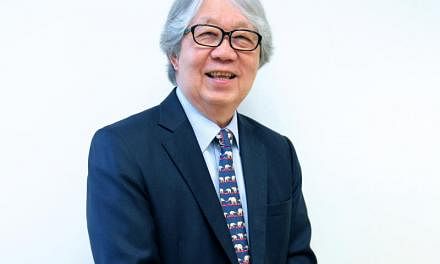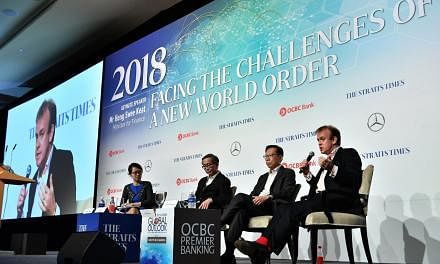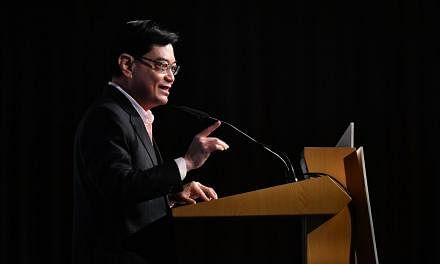SINGAPORE - Singapore's reserves give its economy long-term stability and allow the country to weather crises in a way that many other economies cannot, said Finance Minister Heng Swee Keat.
The minister said the reserves have been accumulated over many years as a result of prudent spending by past generations, and should not be tapped on lightly even as Singapore's spending needs grow.
He was responding to a question from Bank of Singapore chief economist Richard Jerram at The Straits Times Global Outlook Forum on Tuesday (Dec 5).
Mr Jerram asked why recent talk about raising taxes has not been accompanied by discussions about tapping into Singapore's significant reserves.
In the last Budget, the Government spent over $15 billion from the returns on past savings, Mr Heng said.
"This is equivalent to several percentage points of GST, corporate income tax, personal income tax and so on.
"How did we as a country with no natural resources accumulate that?"
Mr Heng said he is "humbled" by earlier generations who prudently set aside money for the future even when the economy was growing rapidly and government revenues were rising.
In addition, the net investment returns framework was put in place to allow the Government to spend up to half of the long-term expected real returns from the assets managed by three Singapore investment entities - GIC, Monetary Authority of Singapore and Temasek Holdings.
The net investment returns contribution overtook corporate income tax to be the No. 1 contributor to government coffers for the first time in the 2016 financial year.
Mr Heng also recounted his experience at the Monetary Authority of Singapore during the global financial crisis.
"My first concern was that the Singapore dollar would come under attack and it would go under," he said, citing as an example American investor George Soros who shorted US$10 billion worth of pound sterling and made US$1 billion in profit in 1992.
"If that attack had come to Singapore we would not be sitting here today discussing this," added Mr Heng.
A second concern was the potential for a large outflow of funds from Singapore, said the minister.
"At that point money was flowing all over the world at an alarming rate. But people knew that if they try to attack the Singdollar, we have the firepower to deal with it."
Mr Heng added: "Having those reserves gives our economic long-term stability and allows us to weather crises in a way that many other economies cannot.
"We need to leave it (the reserves) to future generations so that their future is more secure," said Mr Heng, who added that demographics would be very different 15 years from now, with one in four Singaporeans aged over 65, as compared to one in eight currently.
Titled 'Facing the challenges of a new world order', this year's ST Global Outlook Forum was attended by more than 320 participants.
OCBC Premier Banking is the presenting sponsor for the forum and Mercedes-Benz is the official car for the event.


